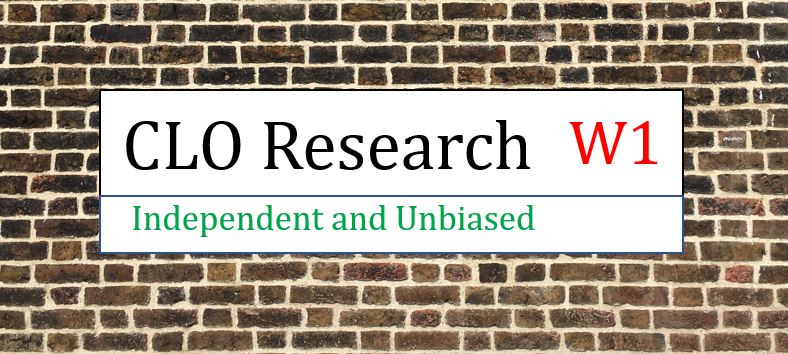GoldenTree Loan Management EUR CLO 1 and 2 (Updated)
GoldenTree had liquidated two of its 2018 CLOs, namely GoldenTree Loan Management EUR CLO 1 and GoldenTree Loan Management EUR CLO 2.
GoldenTree had liquidated two of its 2018 CLOs, namely GoldenTree Loan Management EUR CLO 1 and GoldenTree Loan Management EUR CLO 2.
How do the 2012–2022 vintage US BSL CLO deals perform in terms of cumulative equity distributions plus NAV?
A sample of 492 EU CLO deals (vintage 2013–2023) is included in this study. Deals with a collateral pool factor...
A sample of 1,594 US BSL CLO deals (vintage 2013–2023) is included in this study. Deals with a collateral pool...
The recent reset of Birch Grove CLO 2 has been accretive, reducing the weighted average cost of capital (WACC) by...
Below are tables presenting the MVOC (AAA-B) and EQ NAV of US BSL CLO deals by vintage, based on asset...
Managers who have been proactive in restructuring their seasoned deals whenever opportunities arise would be viewed favourably.
This study includes a sample of 193 seasoned EU CLO deals that have concluded their reinvestment periods. How do the 2013–2022 vintage EU CLO deals perform in terms of cumulative equity distributions plus NAV?
Please see the table below for a list of US BSL CLO managers, including the average percentile across at least eight of their deals, as well as the pricing of their most recent primary or reset deal based on DMs or coupons.
This deal has performed well, with its final IRR expected to exceed 12%, net of incentive fees.
The table below shows recent resets priced since July 1, 2024, and updated in Intex. The MVOC (BB) calculation is based on asset prices as of August 6, 2024.
Please see the table below for the list of US BSL CLO managers and the average percentile across 2-7 of their deals, based on asset prices as of August 6, 2024.
Below are tables presenting the MVOC (AAA-B) and EQ NAV of US BSL CLO deals by vintage, based on asset prices as of August 6, 2024.
Please see the table below for the list of US BSL CLO managers and the average percentile across at least 8 of their deals, based on asset prices as of August 6, 2024.
The reset of Jubilee CLO 2019-XXII must have brought much jubilation to various stakeholders, particularly the holders of fixed-rate notes.
